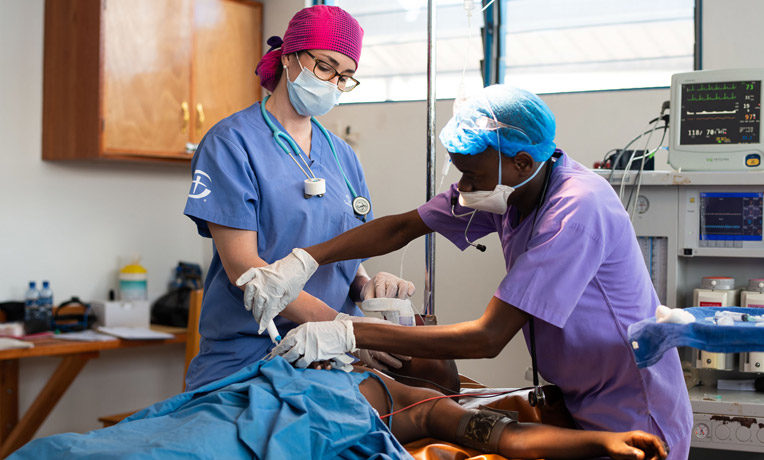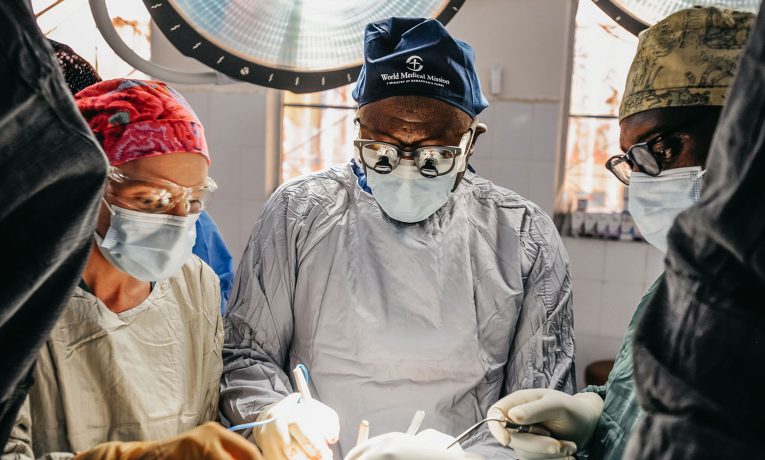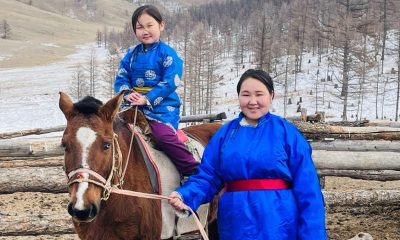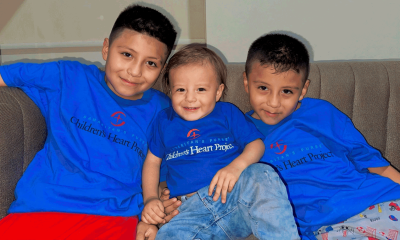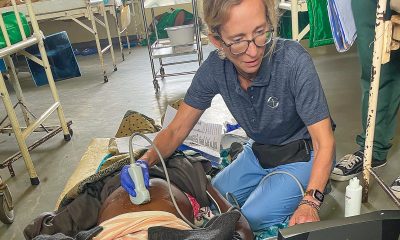Treated as social outcasts because of medical conditions they cannot control, traumatized women are finding hope and dignity at Danja Health Center in Niger.
In her tribal community, Adamma* knew from a young age her esteemed purpose in life was to become a wife and a mother. But at age 22, she remains neither due to a medical condition that makes her unable to become pregnant.
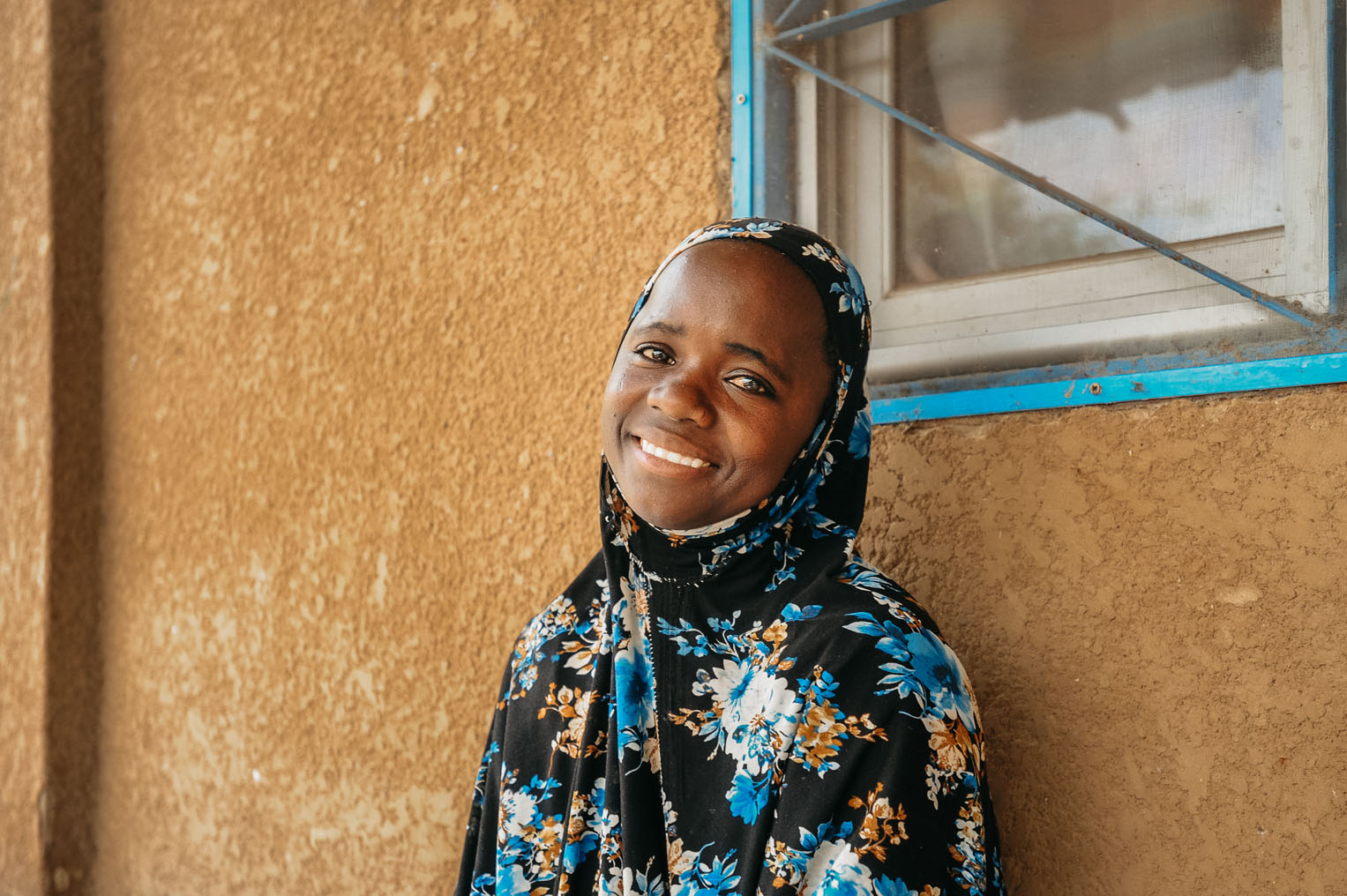
One of a number of patients flashes a smile following her recovery after corrective fistula surgery that will bring normalcy and community back to her life.
Adamma felt cursed, as other girls had already been married for several years and had two or three children by the time they reached her age. Her emotional wounds were magnified by difficulties at home. Adamma’s mother had died when she was 3 years old, and her father’s second wife and their children made her feel like an outsider.
The pastor at her family’s church encouraged Adamma to seek help at a small Christian health center in the town of Danja. That’s where she learned that a surgical team from World Medical Mission was coming to help women like her who desperately needed hope and healing.
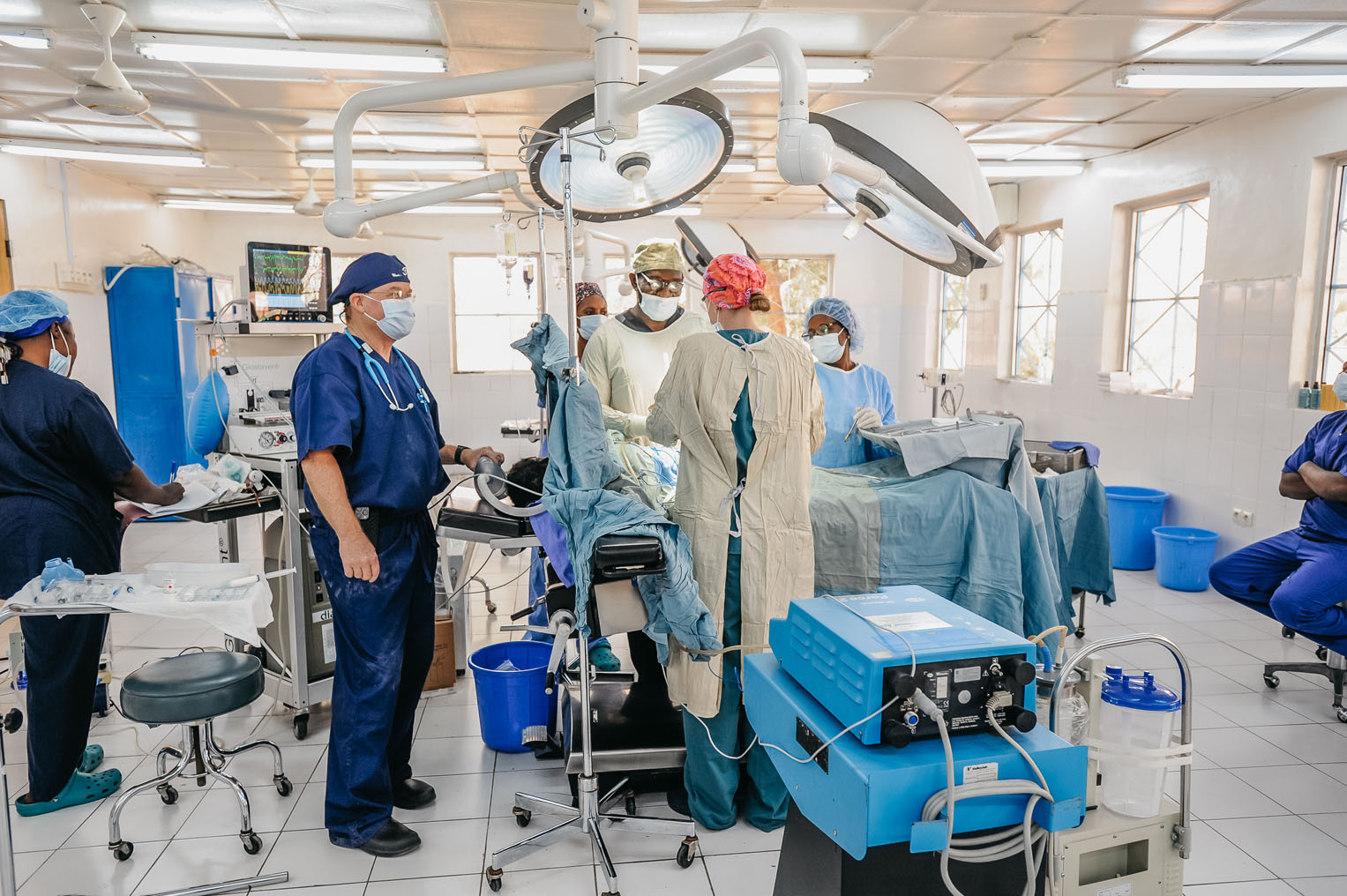
World Medical Mission specialty surgeons serve patients from remote villages without access to anything but the most basic medical care. Fistula is a life-altering condition that causes alienation from communities.
“If I could have just one child,” Adamma pleaded in her native Hausa language to a member of the hospital staff. She was nervous and said little as she steeled herself mentally and physically for the surgery.
The World Medical Mission team circled around Adamma in prayer in the operating room.
“It was a two-hour procedure, and she did not have any complications,” said Madison Strausbaugh, the director of World Medical Mission’s Specialty Teams program. “Although there is no guarantee, this surgery provides hope that Adamma will be able to have children.”
Knowing if the results are successful will take weeks or even months as Adamma begins the recovery process. However, resting in the ward just hours after the surgery, she was smiling, even joyful.
The Danja specialty team performed a variety of life-transforming gynecological/urological procedures last spring on patients ranging in age from 15 to 55. All of the women had endured great anguish and were reaching out for help.
“Even in our short time there, we responded to these patients’ needs through our attempts to bring physical healing, but we also met them with hope and the light and love of the Lord. I think our team did an incredible job of that,” Strausbaugh said.
Healing Through Community
Niger has the highest prevalence of child marriage in the world, according to the international charity Girls Not Brides. Their website reports that 76% of Nigerien girls are married before their 18th birthday, and 28% are married before age 15. Girls as young as 10 are married in some regions of the country.
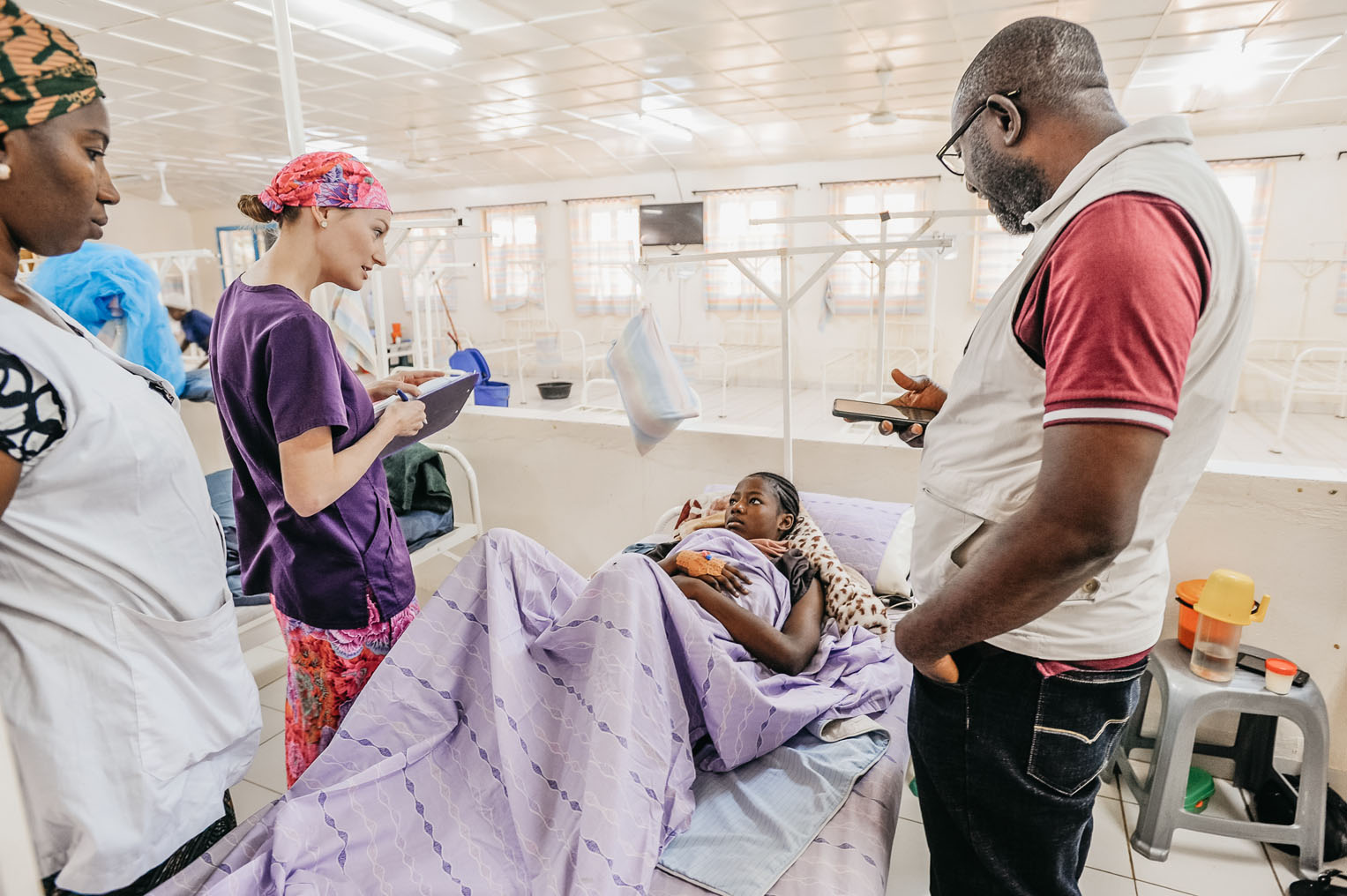
The medical condition of fistula is often accompanied by grief following difficult dangerous deliveries that are often life-threatening to the child.
Because the girls’ reproductive systems and their bodies are not fully developed yet, early teen pregnancies can cause permanent damage. In rural Nigerien villages, the combination of poor nutrition, lack of medical services, and the standard practice of birthing children at home can lead to tragic outcomes for both the young mother and her baby.
Fistulas may develop during prolonged labor (three to five days), creating a hole between the vagina and the bladder or the rectum. The woman is left with an unmanageable situation, both physically and socially, as she cannot control the continuous leakage of urine and/or feces.
In most cases, she helplessly watches as her husband abandons her and her friends avoid her. She has no education or vocational skills to support herself financially. She is labeled “unclean.”
The World Health Organization estimates more than 2 million women around the globe live with obstetric fistula. It is a serious concern in a developing nation like Niger. Recognizing this immense need, the Danja Health Center established a fistula center in 2012 to provide surgical repairs.
Most importantly, the center offers a three-month reintegration program and residential village for the women where they learn vocational skills, hear the Gospel, and experience emotional as well as physical healing.
One morning the World Medical Mission team went to the village pavilion to join the ladies’ Bible study. They were immediately captivated by the beaming smile of 28-year-old Ayo*.
Her life story hints at none of that joyful spirit. Married at age 15, Ayo became pregnant and developed fistula complications following a difficult childbirth. She lost the baby, and for the past 12 years, lost much of her self-respect, too.
“Some people hated me, and some loved me. The people that loved me brought me food. They invited me into their homes. They would not make a face when they smelled me,” Ayo said.
Fortunately for Ayo, her husband remained in her life. During her stay at Danja, he called to check on her.
She has been at the health center for seven weeks, but this is actually her second stint at Danja. Ayo came four years ago for care, and it was here that she heard about the God who loves her.
However, it wasn’t until her most recent sojourn that the Bible stories took on a personal meaning.
“This time the stories, like Jesus calming the storm, touched me differently, and I put my trust in Him. I have so much peace now, because Jesus is all that I need,” she said.
Now Ayo’s countenance exudes joy, and she encourages the women who come to the village to know His love and to love themselves.
She also loves to pray. “I pray with other women in the village. We gather together and we pray for the women here who don’t know Christ yet.”
Ayo learned the art of embroidery, one of several skills the women are taught at Danja so they can earn an income and become more self-reliant when they return home. They also take literacy classes, and counselors help the women process their emotional trauma.
More Than Medical
Seeing lives changed in Niger excites Strausbaugh, as she makes arrangements for Specialty Team surgical trips in other countries this year. What she finds most compelling about the patients is their boldness in telling others about Jesus. Not every surgery is a success, but their encounter with Christ dramatically alters their view of themselves.
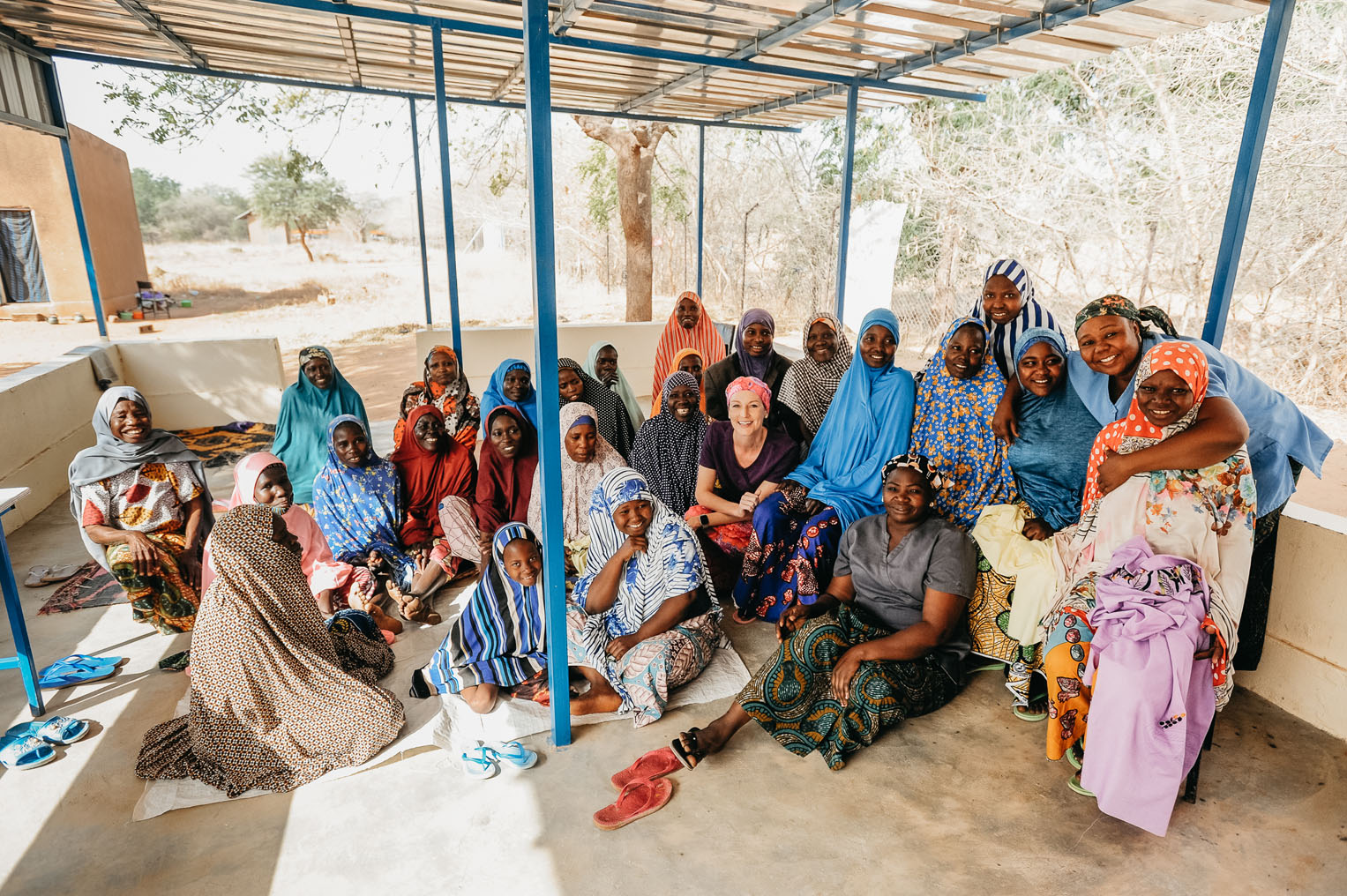
Patients, medical staff, and families gather to celebrate the gift of specialty surgery otherwise unattainable in remote areas of Niger.
Strausbaugh recounted the story of one young woman named Ndidi* who became a believer while staying at Danja in 2020. She was given a MegaVoice solar audio Bible and eagerly shared her faith with her family when she went home. Upon her return to Danja for treatment, she asked for several more to give to others. On this most recent trip, Ndidi couldn’t bring the audio Bible with her because her grandmother refused to part with this prized possession.
“I asked Ndidi, ‘How many people do you think have heard the Word of God through you?’ She told me, ‘I don’t know their hearts, but I know a lot of people have now heard the Word.’
“That for me is why I absolutely will continue, God willing, to take our teams on these missions,” said Strausbaugh. “This isn’t just medical work. We are seeing people connect with the Gospel. Hearts are undoubtedly being transformed.”
*Names changed to protect privacy.
